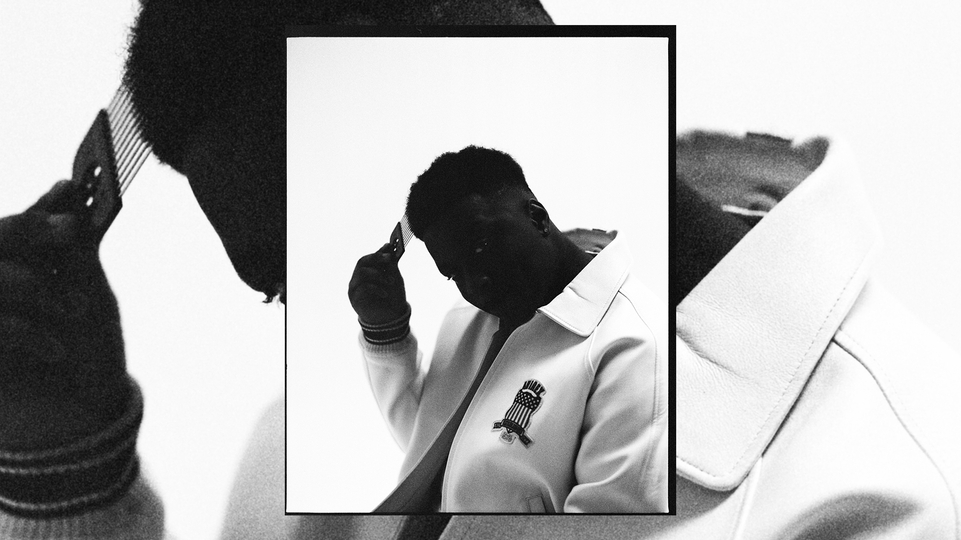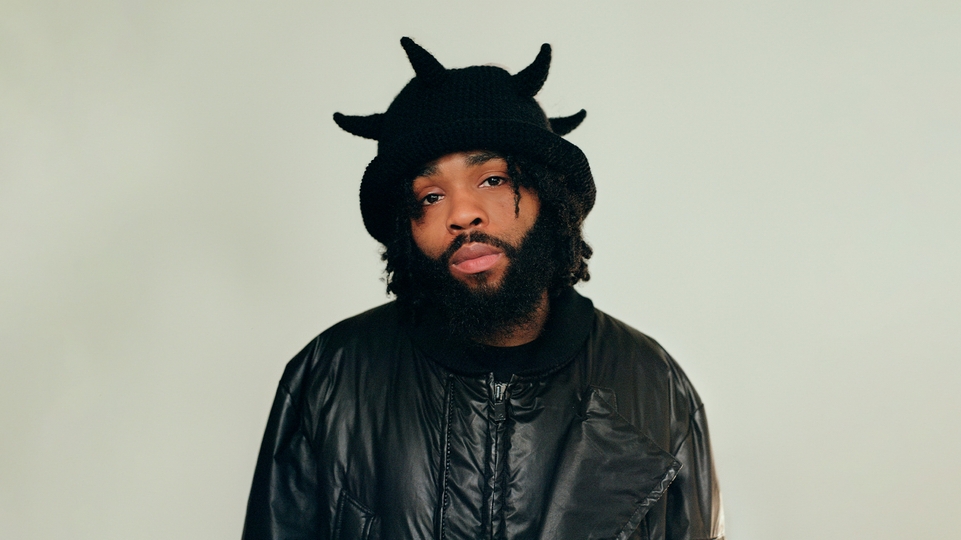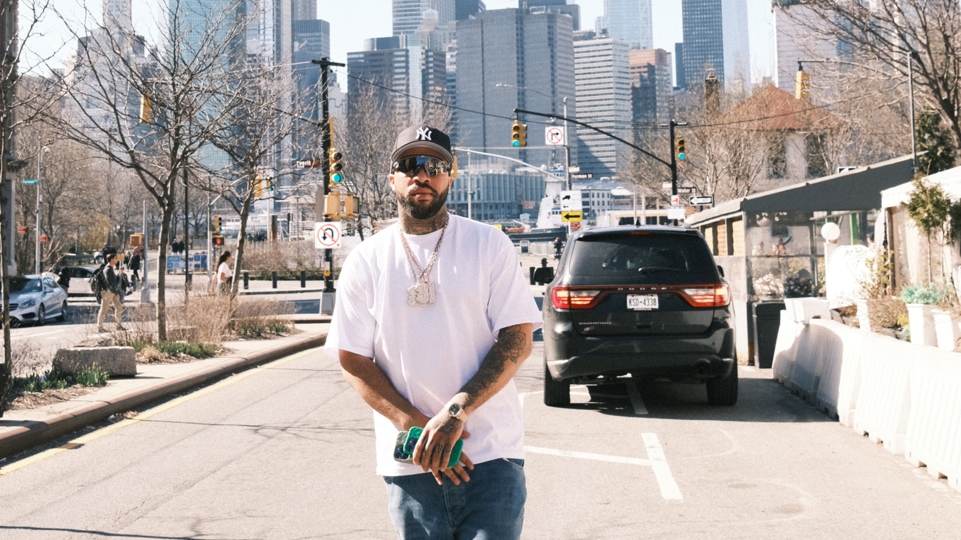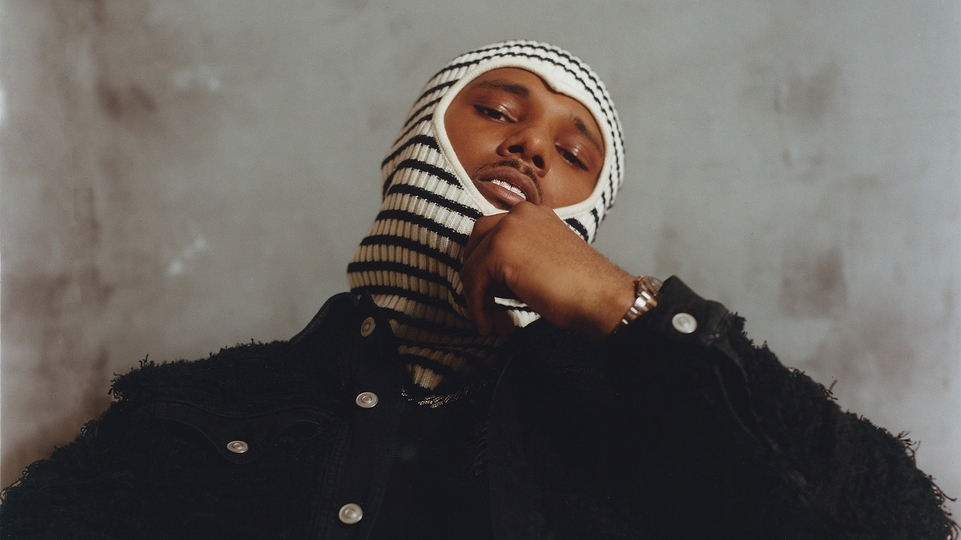.jpg?itok=jtMH4MTW)
Meet the MC: Dapz on the Map
After well over a decade in the game, Birmingham rapper Dapz on the Map drops his debut album ‘Landed’ in October. He speaks to DJ Mag about how grime has matured and embracing the emotional vulnerability of his lyrics
“That’s why you’re a spitter and I’m an artist,” Birmingham’s Dapz on the Map declared on his chest-puffing SBTV debut way back in 2009, shelling bars alongside Tazzle, Lil Choppa and Tempa. He’s since grown into a figurehead for grime in his hometown, notably collaborating with his “brother” JayKae on 2014’s ‘Froggy’ EP — the stuff of 0121 legend — and releasing an extensive body of solo work which showcases his range, from gun-finger inducing anthems like ‘Murdah’ (2015) and ‘Shinobi Part 1’ (2016) to poignant, reflective cuts like 2020’s ‘Beautiful’. Dapz’s vision was clear from the beginning — grime can be way more than 16-bar rallies and reloads.
Thirteen years on from that SBTV moment, the genre is in a very different place. But ask Dapz what he thinks of the idea that grime is ‘dead’ and his answer is nuanced and unapologetically honest. “I feel like the side of grime that’s looking for reloads is dying, bro. I would say that is dead. Everyone who grew up on that is entering their thirties now, they don’t necessarily have the time and energy for that. But they’ve got time for reflection,” he says. “So I don’t think that mature, relatable grime, which only a few artists can make, is dead. Where the beats aren’t just produced, they’re crafted. And the lyrics are relatable, sometimes they’re vulnerable. That’s not dead at all. I think that type of grime is the hardest to make, but if you can do it, you can go clear. So many people move to rap who used to do grime because they can’t do it anymore! There’s a home truth for you, family.”
To paraphrase a Chip lyric, grime is so much more than a tempo; it’s a feeling. When he started out, Dapz connected with the way stalwarts like Kano and Skepta conveyed emotional depth in their music, while retaining the competitive, gritty essence of the sound. “It was so real,” he explains. But one artist resonated with him above all others. “Scorcher has been my favourite MC for years. The space he occupied — he’s a genius! He influenced me. I could show you old mixtapes from when I first started out, and you’ll hear Scorcher all over it. He had a major impact on my career. I always wanted to tell him, and I never got to meet him.”
In the mid-to-late 2000s, North London’s Scorcher, alongside the likes of Wretch 32 and Ghetts as part of seminal collective The Movement, helped elevate grime into something super-lyrical and thematically diverse. “They took it to the next level, and that’s what I came up on,” Dapz says. He describes himself as a student of those artists, and their approach helped shape his own distinct artistry, informing the way he uses both commanding flows and velvet smooth melodies to tell stories of personal struggles on recent singles like ‘Contingency’ and ‘Never Over’.
.jpg.webp?itok=ylqjSKO0)
“I’m just being more confident in what I’m doing now. And I’m being more bold. That’s the vibe."
“I don’t mean to sound blasphemous when I say this, but my grime isn’t necessarily ‘Eskimo Dance’ grime. But is that a bad thing?” he continues. “For years I thought it was a bad thing, because I wasn’t getting booked for those kinds of places, unless I was making music like ‘Murdah’ or [2016’s] ‘Oh My Days’. So did that mean my other work wasn’t good enough? Of course it was! I have to embrace who I am, because it’s not easy doing what I do. I thought, why am I trying to downplay the fact that I’m being so honest and vulnerable, talking about losses and wins and bouncing back. That’s nothing to downplay."
Dapz’s journey towards fully embracing who he is and being the artist he wants to be has been a challenging one, involving false starts, abrupt stops and long breaks away from doing what he loves. He addresses the stop/start nature of his career so far on ‘Contingency’. “We don’t need a contingency plan / We just need some consistency, man,” the Brummie MC demands of himself over a bouncing Swifta Beater production that sounds like it was crafted in a karate dojo. The track will appear on Dapz’s long-awaited debut album ‘Landed’, scheduled for release in September. He announced it on Instagram with a post, describing how for years he hadn’t felt “worthy” of releasing the project, until now.
“It was all down to confidence really. In the past, I felt like I didn’t have the courage to go out there on my own and do a solo album. Even though I had a definition in my head of an album years ago, in the sense that it needs to be balanced and not just one sound, and feature a mixture of emotions,” he explains. “If I didn’t do an album, I don’t feel like my music would’ve been respected in the same way, because I feel like I’ve been making music that could’ve been on an album for years.”
At its core, Dapz’s story has been about overcoming his insecurities, in order to blossom into the artist he is today. That’s not easy when you’re part of a scene that’s often been criticised for its rigidity and unwillingness to evolve in comparison to other genres of Black British music. Dapz’s distinct lane of what he describes as “mature, relatable grime” pairs his undoubted skill as a microphone champion with an accomplished, emotive singing voice. Through it, he explores themes about the fabric of everyday life: complicated relationships, financial precarity, parenthood and providing for a young, growing family, persevering and pursuing our dreams. It’s very different from the grime of clashes, cyphers and Eskimo Dances that gave voice to an entire generation. But he’s finally realising there’s strength in that difference. “I’m just being more confident in what I’m doing now,” Dapz says. “And I’m being more bold. That’s the vibe.
“I think insecurities will always be present, as you advance, as you grow,” he continues. “Things change, situations change, even your body changes. So my insecurities will always be there, but I’ve reached a stage where I can embrace them now, and I can outwork them. If I keep outworking them, eventually I won’t feel that way about them.”
As a father of three young children, perhaps what held Dapz back in the past is the nagging doubt that pursuing a full-time career in music wouldn’t allow him to give them the life they deserve. He says the experience of being a father “opens your heart more” and encourages you to be mature in what you do. There’s an unmistakable positivity and warmth in Dapz’s music because he knows his children are listening. And now he’s forged those lingering doubts into a steely determination to secure a future for them. “It’s not just for myself now,” he says. “It’s for them, it’s for my partner. So I can’t let them down. Although I still have down days, the up days outweigh them. I strive for those days.”





